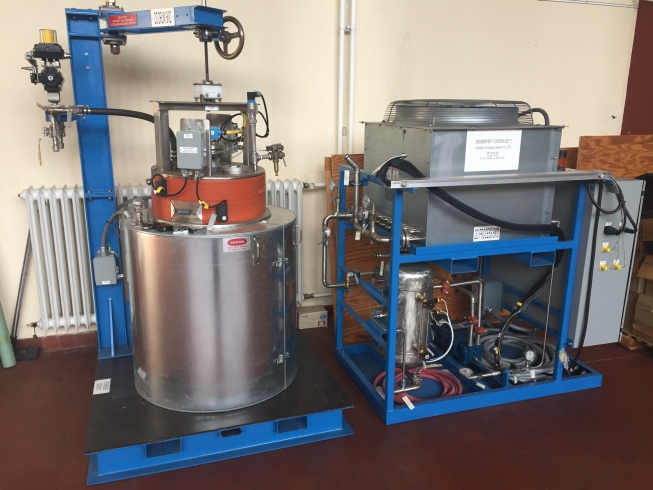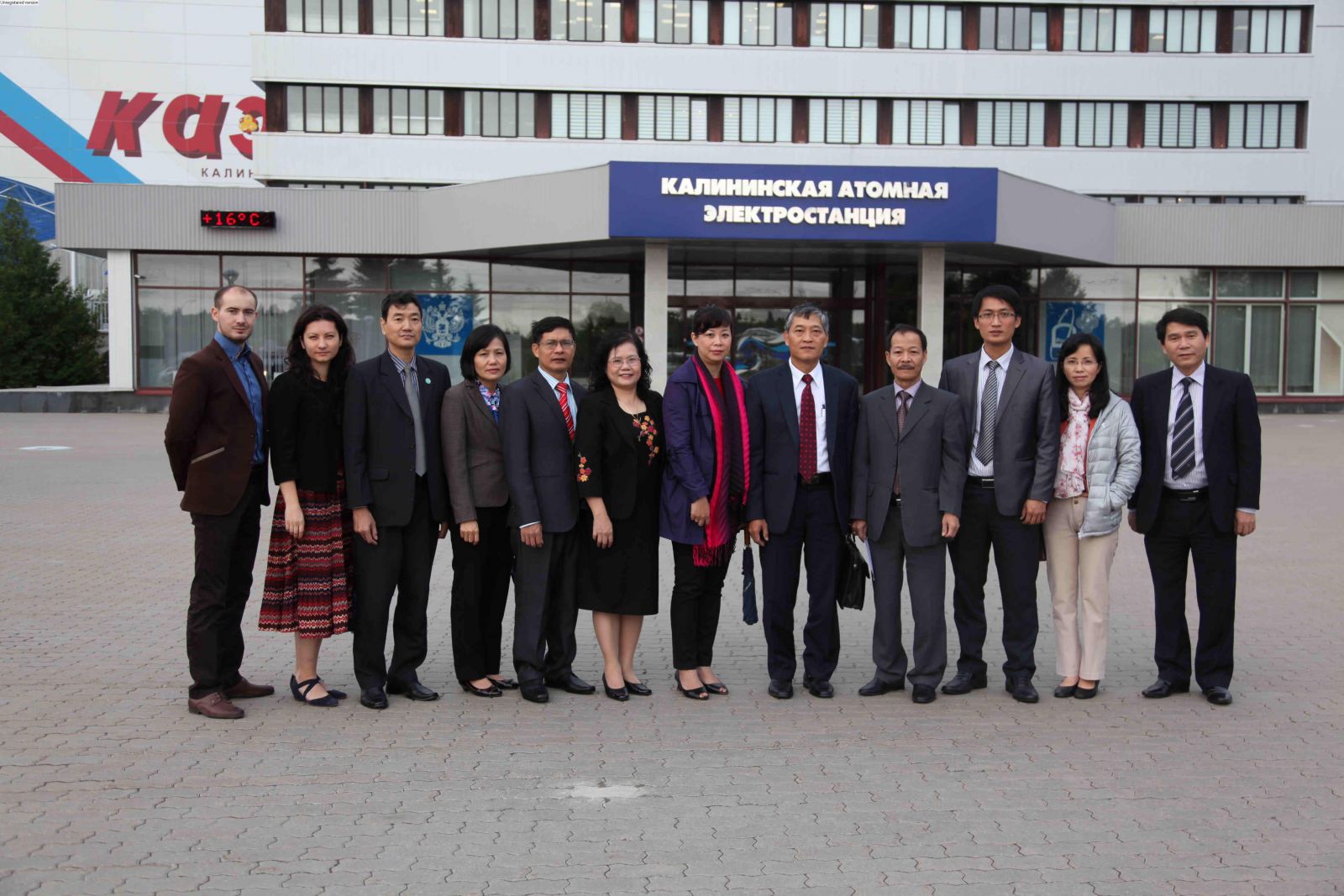
A drum dryer used to prepare waste packages for long term storage at the Public Company Nuclear Facilities of Serbia, Belgrade. (Photo: M.Ojovan/IAEA)
Opportunities for IAEA Member States without radioactive waste management infrastructure to handle their relatively small waste inventories was the focus of a recent IAEA workshop held in the Serbian capital of Belgrade.
Every Member State that uses nuclear technology generates radioactive waste. Some generate relatively small volumes of low and intermediate level radioactive waste, from research activities or the application of nuclear techniques in medicine and industry. In these so-called “small users”, Member States without major nuclear programmes, facilities and equipment to manage such waste may be non-existent or limited. In other Member States, the existing radioactive waste processing and storage facilities need varying degrees of upgrading. The IAEA supports these Member States to manage their radioactive wastes in a safe and cost-effective manner.
In recent years, the modular and mobile radioactive waste processing technologies has drawn attention of small users due to inherent flexibility that offer transportable and temporary installations. For countries without appropriate nuclear waste management facilities, such approach is a most effective option to handle their radioactive waste in view of their safe storage and disposal.
This important issue that concerns the majority of IAEA Member States was the core of a Regional Workshop on Modular Design and Operation of Mobile Processing and Storage Facilities for Small Users, held in Belgrade from 14 to 18 November. Conducted under a regional IAEA Technical Cooperation (TC) project and hosted by the Public Company Nuclear Facilities of Serbia (PCNFS) at its Vinča site, it involved over 28 radioactive waste management specialists from 23 countries in Europe and Central Asia.
In identifying the needs of small user Member States with varying types and quantities of radioactive waste, participants shared hands-on experiences on using modular and mobile facilities that can help implement the required waste processing and subsequent storage solutions.
“Looking into capabilities of mobile facilities for removal of radionuclides from contaminated soil and mobile equipment to immobilize sealed radioactive sources directly in shielded containers are crucial for Moldova as there is an urgent need for a solution,” said Ruslan Papusoi, a participant from Moldova. “We believe that partnerships that we have established during this workshop, as well as continued IAEA assistance, will help us to resolve our problems.”
The IAEA has two comprehensive documents published under its Nuclear Energy Series: Mobile Processing Systems for Radioactive Waste Management, and Modular Design of Processing and Storage Facilities for Small Volumes of Low and Intermediate Level Radioactive Waste including Disused Sealed Sources. Serving as a holistic guidance on deploying these approaches, IAEA publications are aimed at enabling end-users to determine optimal waste processing and storage facilities.
“Handling small volumes of radioactive waste requires careful consideration, so as to be safe and practical,” said Ian Gordon, Head of the IAEA’s Waste Technology Section. “At the IAEA, we are proud to assist in facilitating solutions to support Member States.”
The workshop hosted in Serbia was one in a series of workshops, seminars and training courses designed to enhance radioactive waste management capabilities, share experience and best practices among Member States. It provided nuclear operators and regulators an excellent opportunity to visit the Serbian radioactive waste processing facility (RWPF) and storage hangars and to participate in group exercises. Serbia has a large volume of legacy radioactive waste, stored at the PCNFS. The site has been implementing preparatory works on waste disposal that requires removal of radioactive waste from its old hangars to the newly constructed waste storage facility.
“In the long run, with the use of mobile facilities, Serbia will be potentially in a position to help other countries, such as states from the former Yugoslavia, to manage their radioactive waste,” said Milutin Jevremovic of PCNFS.
There is a need in defining effective ways to improve existing waste management practices and in resolving common problems in countries with small amounts of radioactive waste. The IAEA TC project mentioned above supports 32 Member States in Europe and Central Asia in enhancing and strengthening the technical capacity, efficiency and safety of existing waste management facilities, as well as in harmonizing approaches for various waste streams.




